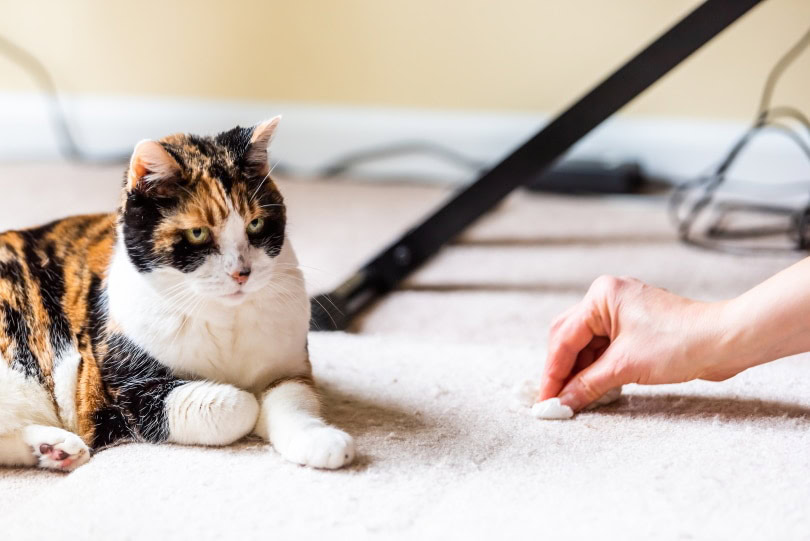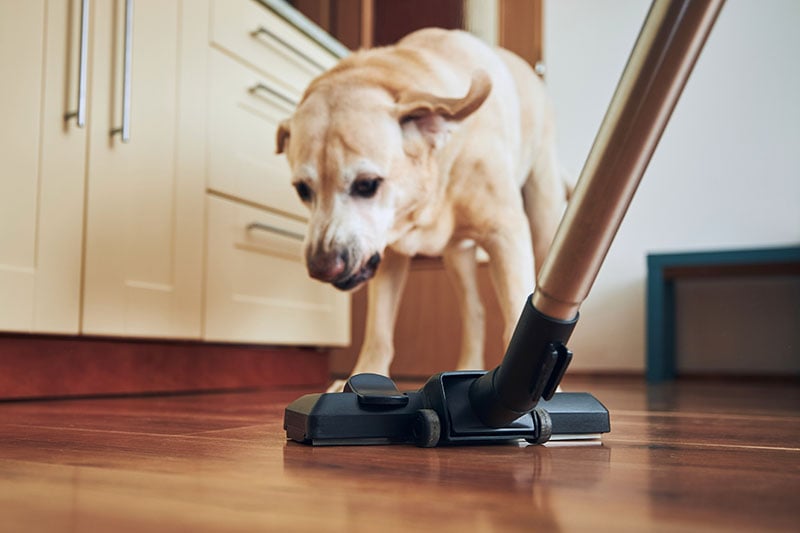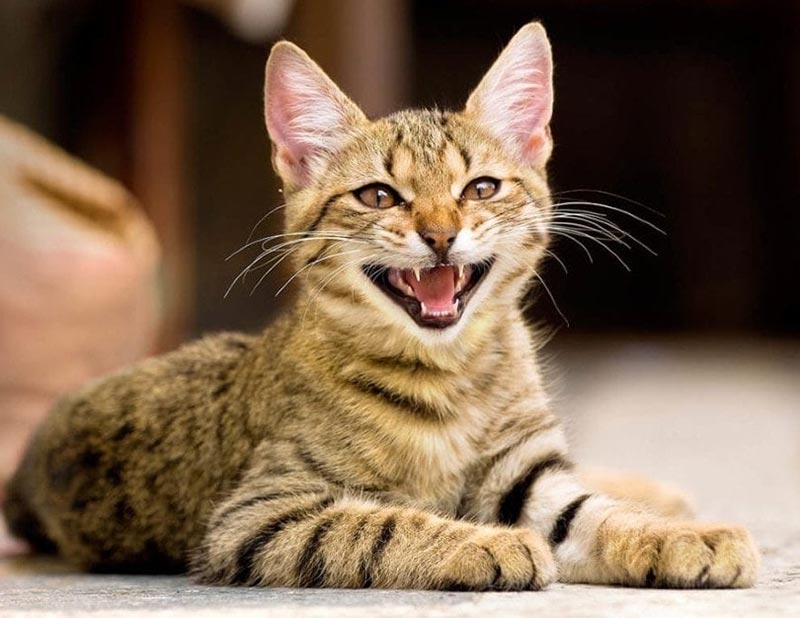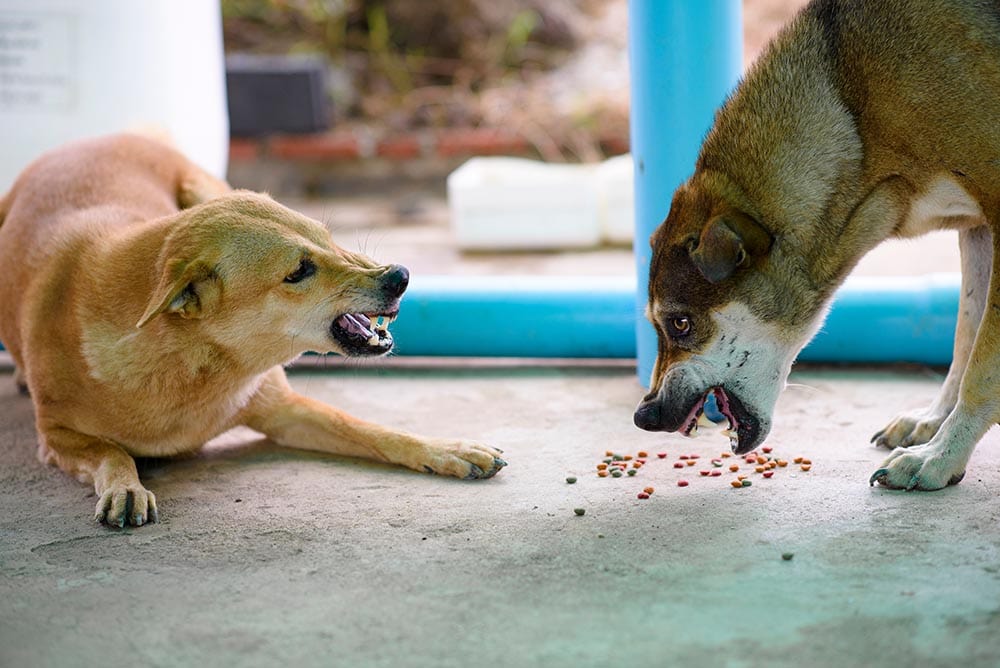VET APPROVED

The information is current and up-to-date in accordance with the latest veterinarian research.
Learn more »Click to Skip Ahead
Cats have a rich emotional life and are capable of feeling myriad emotions, ranging from joy and anger to frustration and contentment. However, contrary to some people’s beliefs, these mysterious creatures do not hold a grudge. So, your kitty won’t be pooping out of their litter box out of spite, but rather because of a medical, behavioral, or circumstantial issue. Let’s take a closer look at the reasons that can lead a cat to defecate outside their assigned bathroom.

Medical Causes
When a cat urinates or defecates outside of their litter box, it is called house soiling or inappropriate feline elimination. A cat that pees unusually, either in their litter box or outside of it, may have a urinary tract infection (UTI) or other medical causes related to their bladder. However, these urinary problems do not explain why a cat would poop in an inappropriate place.
Instead, gastrointestinal issues could be to blame for this behavior.
Constipation
Constipation is quite common in cats. It can be caused by dehydration due to kidney disease, diabetes, megacolon, hyperthyroidism, bowel obstruction, or other bowel problems. It can also be caused by improper diet. Therefore, cats suffering from constipation won’t use their litter much but may have small dry stools that they will leave anywhere in the house.
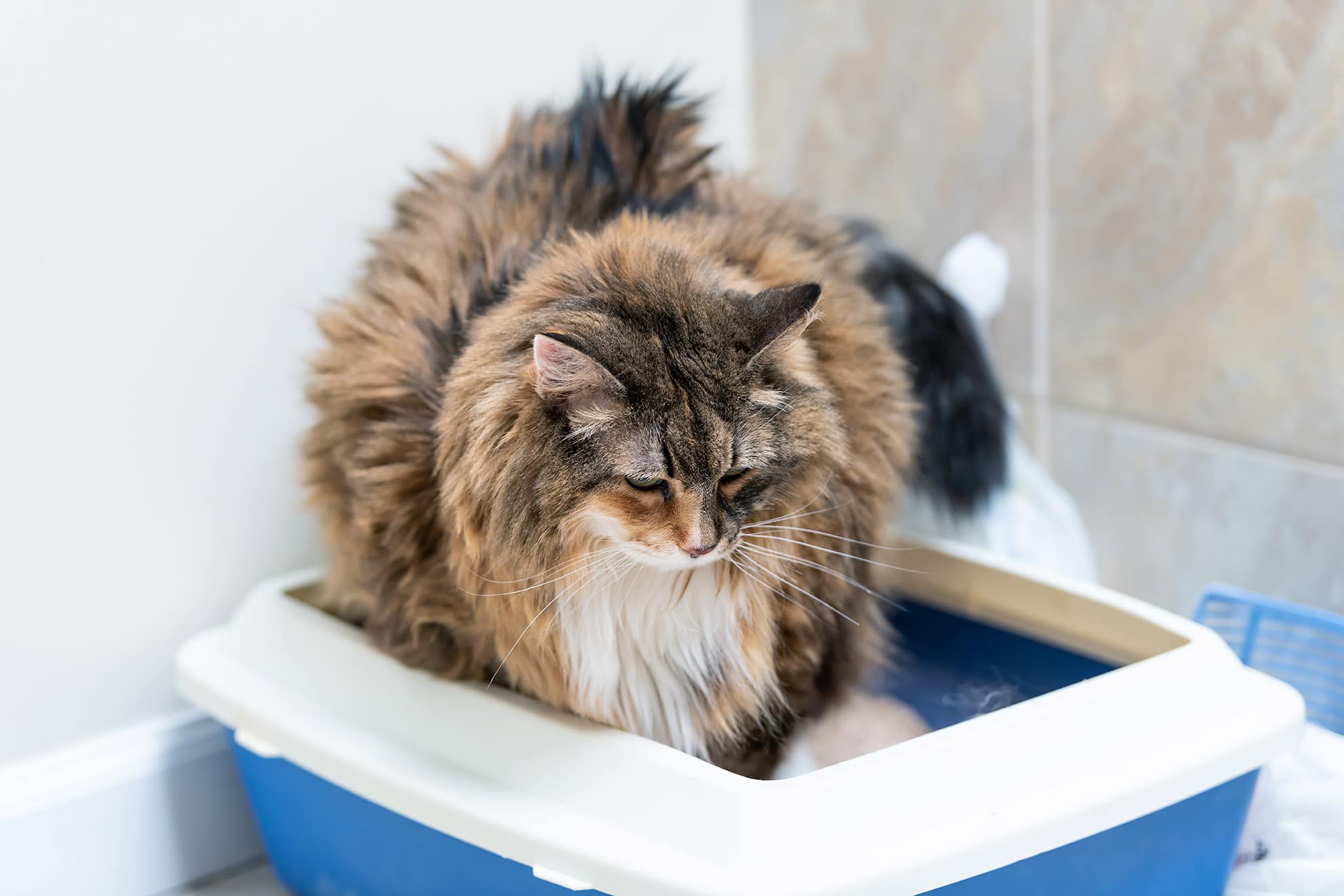
Diarrhea
Cats can suffer from diarrhea, and if the urge hits them, they may not have time to get to their litter box. Gastrointestinal infections and stress are common causes of diarrhea.
Colitis
Histiocytic ulcerative colitis is a bowel disease that causes the lining of a cat’s colon to thicken and ulcerate. Signs of inflammation of the colon or rectum in cats are frequent toilet trips with only a small amount of stool.
Ultimately, gastrointestinal problems can lead a cat to defecate outside of their litter box due to poor bowel control and increased frequency of defecation. Constipation, diarrhea, colon inflammation, and colitis are just a few of the medical issues that should be ruled out when determining the cause of improper defecation.
There are also other medical problems that can cause this behavior, which are related to the cat’s mobility.
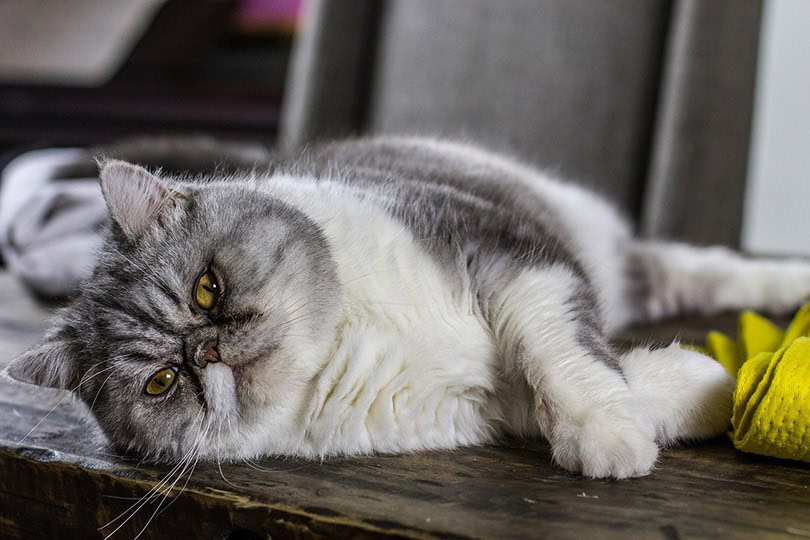
Arthritis
Arthritis is another common condition that can cause a cat to poop on the floor instead of in their litter box. This condition affecting the joints and muscles can cause enough pain, discomfort, or stiffness for your cat to avoid entering their litter box (especially if the entrance to it is difficult to access).
Other conditions affecting the joints can make it harder for your cat to enter their litter box and defecate in a comfortable position. Your cat could also suffer from cognitive dysfunction, preventing them from being able to orient themselves in the house and find their personal toilet.
To determine the best treatment for your kitty, you will need to visit your veterinarian so they can do a complete physical examination and establish an accurate diagnosis.
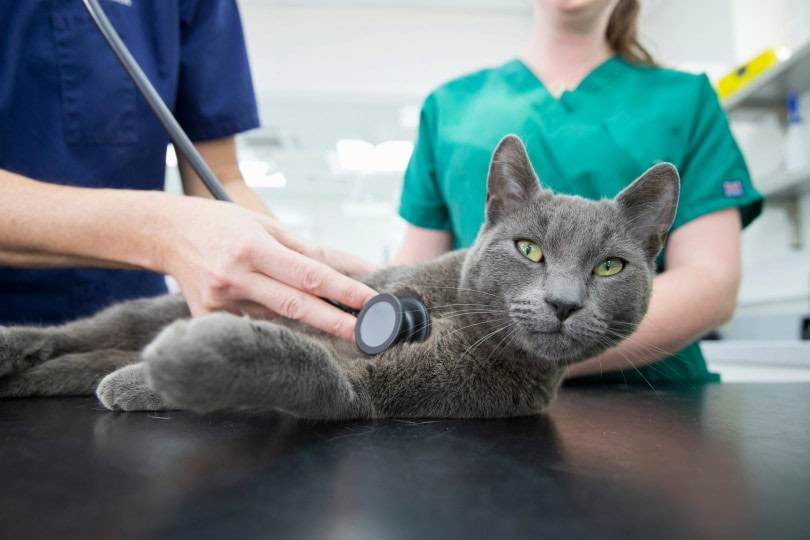
However, if your cat has a medical condition that cannot be fully relieved (for example, arthritis related to advanced age), you will need to make changes to their toilet area. For example, move their litter box to an easily accessible place, and buy a box more suited to their reduced mobility. Your veterinarian can advise you on the right things to do to help your cat find their way to their litter box.
Note: Even if the medical issue is resolved, your cat may maintain the habit of pooping outside of their box. You may have to teach them to use their litter box properly again, possibly with the help of a behavioral therapist.

Behavioral Causes
If your cat isn’t suffering from a medical condition, house soiling may have a behavioral cause.
Stress and Anxiety
Your cat can suffer from stress for a multitude of reasons. For example, if you’ve been away for a few days, your cat may suddenly start pooping outside their litter box when you return. It’s not out of revenge, but rather because your return upsets the new habits that they had to make when you left. This is particularly stressful for them. Indeed, the cat is a creature of habit, and if there is one thing that they hate, it’s environmental changes.
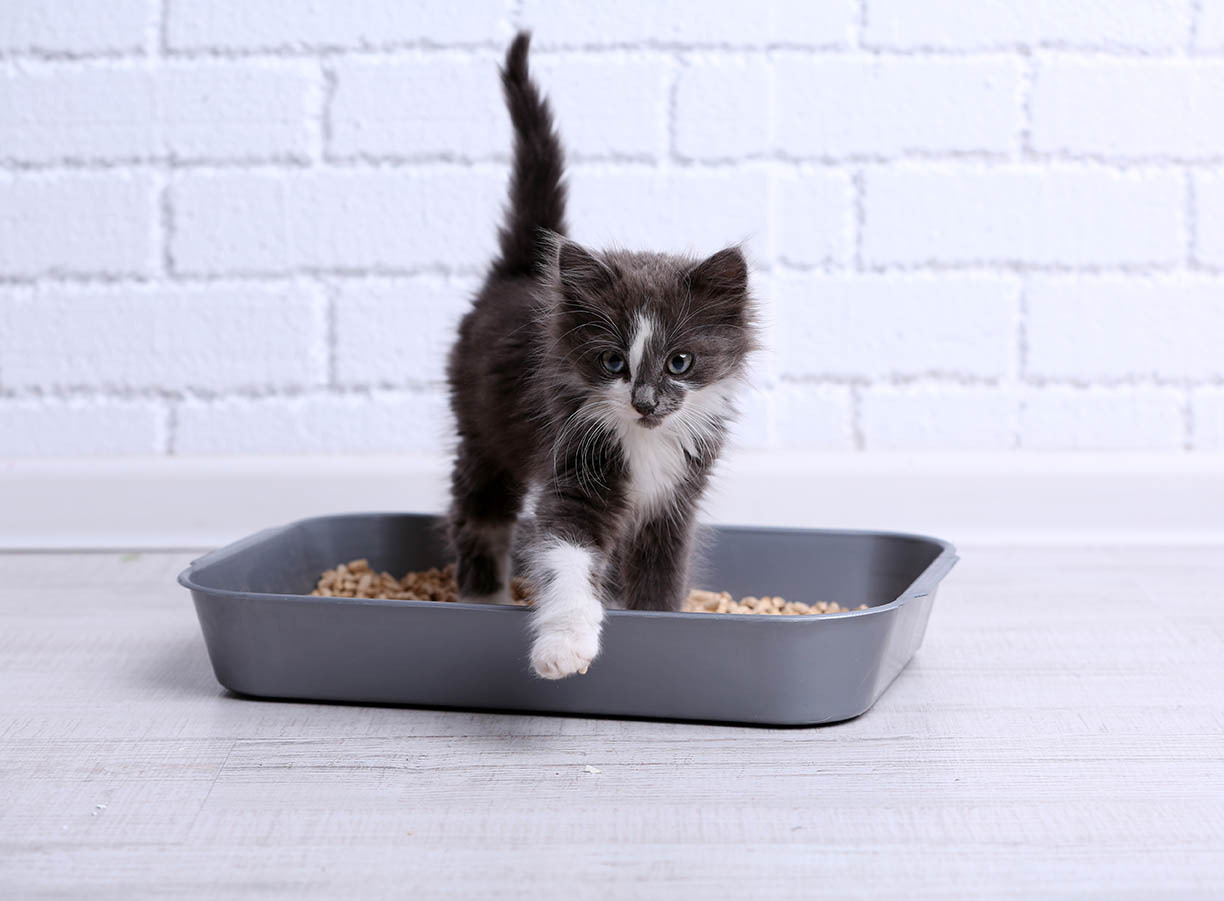
Thus, when a change disrupts their environment, a cat may tend to defecate out of their litter box to reassure themselvles. This behavior may seem strange to us, but surrounding themselves with their own scent gives the feline a sense of security and confidence.
This is probably why many cat owners think their pet poops out of spite. They think their cat is angry at the change in their routine and suddenly starts soiling the house in retaliation. But it’s just a way for the cat to manage their stress because their own scent is reassuring during hectic and stressful times.
Frustration, Aggression, and Territorial Defense
Cats are territorial in nature. If you have multiple kitties in your household, it’s possible that one or more of them will start pooping in another area, especially if you don’t have enough litter boxes for all of your cats. If there is some animosity between your cats, they will certainly not all go to the same litter box to do their business!
Litter or Litter Box Issues
Your cat may also have an aversion to their litter box or the litter itself, which will lead them to defecate in another place. For example, that new brand of lavender-scented litter can irritate their airways. Or maybe their litter box location is noisy or too far away. It’s up to you to try to find what’s wrong with the litter box—whether the substrate or the location—even if it means doing some trial and error before pinpointing the exact problem.
No matter how hard you try, pets will always leave you cleaning up smells, stains, vomit, hair, and everything in between. With the Hepper Advanced Bio-Enzyme Pet Stain & Odor Eliminator Spray, you can advance your clean-up routine!
- ADVANCED ENZYMATIC CLEANER - Penetrates the most stubborn smells and stains at the deepest molecular...
- FOR ANY MESS, ON ANY SURFACE - This pet odor eliminator cleans your carpets, floors, furniture,...
- FRESH, NATURAL ODOR - Our unique formulation doesn't rely on dangerous or unpleasant chemical...
It permanently removes the very worst pet stains and smells (and truly makes clean-up a breeze). Click here to learn more, order a bottle, and freshen up your home today.
At PangoVet, we’ve admired Hepper for many years, and decided to take a controlling ownership interest so that we could benefit from the outstanding products of this cool cat company!

What Should You Do First?
Make an appointment with your veterinarian to do a complete checkup on your cat. If in the end, your kitty does not have any health problems justifying this behavior, discuss the possible options and actions to be taken with the veterinarian.
If you have multiple cats, make sure they all have access to a separate litter box. Keep the litter spotless, and place the box in a quiet and easily accessible place. Buy a new litter box that suits your pet’s needs. A huge self-cleaning litter box might be a dream option for you, but your cat might be stressed out just looking at it!
Finally, if their house soiling problems are stress-related, your veterinarian can advise you on certain medications and other treatments to soothe their anxiety. In the end, whatever the problem of your dear feline, patience, time, and outside professional opinion will be your best allies.
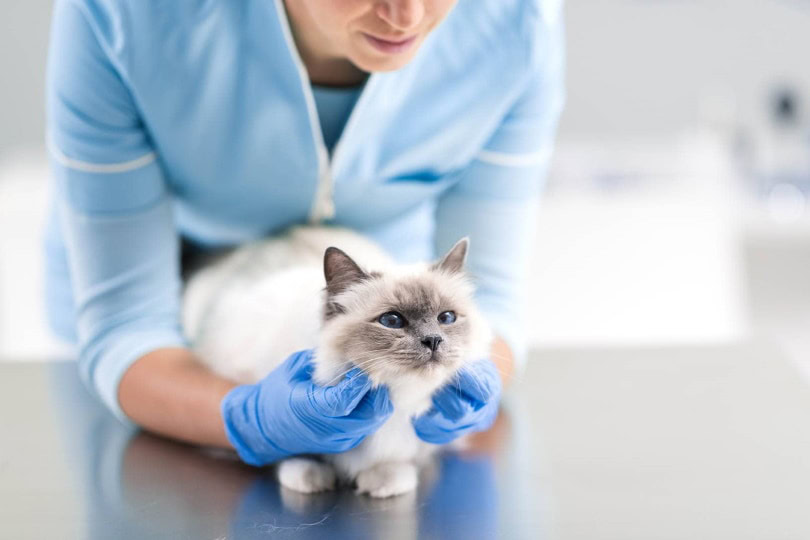

Bottom Line
Although cats have emotions, they don’t hold grudges or poop out of spite. So, if your cat seems sulky when you return from vacation and starts pooping everywhere, it’s probably because they had to adapt to a new routine while you were gone. However, house soiling problems can also be due to medical causes, so a visit to the vet is always the first step in these cases.
See also:
- Best Kitten Foods for Diarrhea
- Best Probiotics for Cats
- Best Kitten Milk Replacers & Formulas
- Do Cats Like Privacy When They Poop?
- Do Cats Always Land on Their Feet?
Image Credit: Kristi Blokhin, Shutterstock
